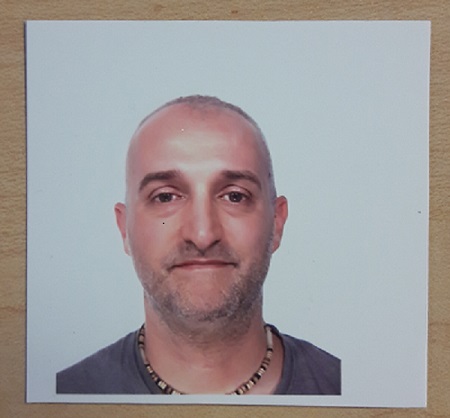Studiare
In questa sezione è possibile reperire le informazioni riguardanti l'organizzazione pratica del corso, lo svolgimento delle attività didattiche, le opportunità formative e i contatti utili durante tutto il percorso di studi, fino al conseguimento del titolo finale.
Calendario accademico
Il calendario accademico riporta le scadenze, gli adempimenti e i periodi rilevanti per la componente studentesca, personale docente e personale dell'Università. Sono inoltre indicate le festività e le chiusure ufficiali dell'Ateneo.
L’anno accademico inizia il 1° ottobre e termina il 30 settembre dell'anno successivo.
Calendario didattico
Il calendario didattico indica i periodi di svolgimento delle attività formative, di sessioni d'esami, di laurea e di chiusura per le festività.
| Periodo | Dal | Al |
|---|---|---|
| Sem. IA | 25-set-2017 | 11-nov-2017 |
| Sem. IB | 13-nov-2017 | 20-gen-2018 |
| Sem. IIA | 26-feb-2018 | 21-apr-2018 |
| Sem. IIB | 23-apr-2018 | 9-giu-2018 |
| Sessione | Dal | Al |
|---|---|---|
| Sessione Invernale | 22-gen-2018 | 24-feb-2018 |
| Sessione Estiva | 11-giu-2018 | 28-lug-2018 |
| Sessione Autunnale | 27-ago-2018 | 22-set-2018 |
| Sessione Straordinaria | 14-gen-2019 | 16-feb-2019 |
| Sessione | Dal | Al |
|---|---|---|
| Sessione Estiva | 16-lug-2018 | 21-lug-2018 |
| Sessione Autunnale - Servizio Sociale | 9-nov-2018 | 9-nov-2018 |
| Sessione Primaverile | 1-apr-2019 | 6-apr-2019 |
| Periodo | Dal | Al |
|---|---|---|
| Festa di Ognissanti | 1-nov-2017 | 1-nov-2017 |
| Festa dell'Immacolata | 8-dic-2017 | 8-dic-2017 |
| Vacanze di Natale | 22-dic-2017 | 7-gen-2018 |
| Vacanze di Pasqua | 30-mar-2018 | 3-apr-2018 |
| Festa della liberazione | 25-apr-2018 | 25-apr-2018 |
| Festa del lavoro | 1-mag-2018 | 1-mag-2018 |
| Festa del Santo Patrono - S. Zeno | 21-mag-2018 | 21-mag-2018 |
| Festa della Repubblica | 2-giu-2018 | 2-giu-2018 |
| Vacanze Estive | 13-ago-2018 | 18-ago-2018 |
Calendario esami
Gli appelli d'esame sono gestiti dalla Unità Operativa Segreteria Corsi di Studio Scienze Umane.
Per consultazione e iscrizione agli appelli d'esame visita il sistema ESSE3.
Per problemi inerenti allo smarrimento della password di accesso ai servizi on-line si prega di rivolgersi al supporto informatico della Scuola o al servizio recupero credenziali
Per dubbi o domande leggi le risposte alle domande più frequenti F.A.Q. Iscrizione Esami
Docenti
 stefania.annechini@univr.it
stefania.annechini@univr.it
 gaia.cetrano@univr.it
gaia.cetrano@univr.it
 roberto.dallachiara@univr.it
roberto.dallachiara@univr.it
 giorgia.decarli@univr.it
giorgia.decarli@univr.it
 annamaria.giarola@univr.it
annamaria.giarola@univr.it
Povolo Luciana
 antonella.salvan@univr.it
antonella.salvan@univr.it
Strano Silvana
 silvana.stranoligato@univr.it
silvana.stranoligato@univr.it
 +39 045 8028856
+39 045 8028856
 giorgio.zoccatelli@univr.it
giorgio.zoccatelli@univr.it
Piano Didattico
Il piano didattico è l'elenco degli insegnamenti e delle altre attività formative che devono essere sostenute nel corso della propria carriera universitaria.
Selezionare il piano didattico in base all'anno accademico di iscrizione.
1° Anno
| Insegnamenti | Crediti | TAF | SSD |
|---|
Lingua straniera competenza linguistica liv. B1 (completo) a scelta tra: INGLESE, FRANCESE, SPAGNOLO, TEDESCO2° Anno Attivato nell'A.A. 2018/2019
| Insegnamenti | Crediti | TAF | SSD |
|---|
3° Anno Attivato nell'A.A. 2019/2020
| Insegnamenti | Crediti | TAF | SSD |
|---|
Un insegnamento a scelta| Insegnamenti | Crediti | TAF | SSD |
|---|
Lingua straniera competenza linguistica liv. B1 (completo) a scelta tra: INGLESE, FRANCESE, SPAGNOLO, TEDESCO| Insegnamenti | Crediti | TAF | SSD |
|---|
| Insegnamenti | Crediti | TAF | SSD |
|---|
Un insegnamento a sceltaLegenda | Tipo Attività Formativa (TAF)
TAF (Tipologia Attività Formativa) Tutti gli insegnamenti e le attività sono classificate in diversi tipi di attività formativa, indicati da una lettera.
Istituzioni di diritto pubblico e diritti di cittadinanza (2017/2018)
Codice insegnamento
4S01025
Crediti
6
Lingua di erogazione
Italiano
Settore Scientifico Disciplinare (SSD)
IUS/09 - ISTITUZIONI DI DIRITTO PUBBLICO
L'insegnamento è organizzato come segue:
Lezioni
Esercitazioni
Obiettivi formativi
L’obiettivo formativo principale del corso è di fornire agli studenti la conoscenza dei principî, delle regole, degli istituti e dei concetti basilari della disciplina, che trovano immediato riscontro negli insegnamenti degli anni successivi e concreta applicazione nello svolgimento della futura attività professionale. A tal fine, e più in generale, vengono offerte anche le competenze linguistiche specialistiche per affrontare e padroneggiare l’intero fenomeno giuridico negli anni di studio e lavoro a venire.
Al termine delle lezioni lo studente dovrà essere in grado di comprendere che la sua futura attività in ambito professionale non può prescindere dai principî, dalle regole e dagli istituti giuridici che caratterizzano la nostra Costituzione e che descrivono un modello economico e sociale concepito per dare il più ampio risalto ai valori dell’eguaglianza sostanziale e della solidarietà, in particolare attraverso il riconoscimento e la tutela di tutti i diritti: civili, politici, economici, sociali e culturali, assolutamente indivisibili e interdipendenti.
Programma
Per favorire l’apprendimento e l’implementazione delle conoscenze implicate, il corso, dopo un’indispensabile parte teorica introduttiva, si sviluppa attraverso l’analisi di una cospicua casistica giurisprudenziale. In particolare, l’insegnamento considera gli elementi fondamentali del diritto pubblico italiano, mettendo in risalto i principî costituzionali che lo ispirano e la loro realizzazione. In tale prospettiva, dopo una parte introduttiva dedicata allo Stato e all’evoluzione delle sue forme, utile a comprendere anche i caratteri attuali dell’Unione europea, vengono via via analizzati: l’organizzazione costituzionale italiana, con particolare riguardo al sistema delle competenze che caratterizza il nostro Stato regionale; il sistema delle fonti del diritto; il sistema di riconoscimento e di tutela multilivello dei diritti fondamentali, in specie dei diritti sociali, con particolare attenzione al diritto alla salute e al diritto all’assistenza sociale; tutti elementi indefettibili per il corretto e responsabile svolgimento delle future attività professionali in un contesto sociale ineluttabilmente proiettato verso una “cittadinanza sociale aperta”.
In sintesi:
1. Lo Stato, le sue forme e gli Enti pubblici.
2. L’Unione europea: cenni.
3. L’organizzazione costituzionale italiana.
4. In particolare: l’organizzazione regionale e del governo locale.
5. Le fonti del diritto: nozioni generali.
6. I diritti costituzionali fondamentali.
7. In particolare: il diritto alla salute.
8. In particolare: il diritto all’assistenza sociale.
9. La tutela multilivello dei diritti: antologia di casi giurisprudenziali.
Per consentire agli studenti di acquisire le competenze indicate, gli argomenti in programma verranno trattati non solo con lezioni frontali, ma anche per mezzo di numerose esercitazioni, caratterizzate dall’uso continuo di slides aventi ad oggetto non solo i profili teorici della materia ma anche l’essenziale casistica giurisprudenziale che ad essi si associa.
Bibliografia
| Attività | Autore | Titolo | Casa editrice | Anno | ISBN | Note |
|---|---|---|---|---|---|---|
| Lezioni | R. BIN, D. DONATI, G. PITRUZZELLA, | LINEAMENTI DI DIRITTO PUBBLICO PER I SERVIZI SOCIALI (Edizione 3) | G. Giappichelli editore | 2019 | 9788892129924 |
Modalità d'esame
Obiettivi delle prove di accertamento
L’esame è volto ad accertare:
• la conoscenza degli argomenti in programma;
• la capacità di esporli con un lessico giuridico appropriato;
• l’abilità di collegare in forma sistemica le conoscenze maturate;
• le capacità analitiche ed argomentative;
• la capacità di applicare gli schemi logico-giuridici che si evincono dagli argomenti trattati e, in particolare, dalla casistica giurisprudenziale affrontata nella seconda parte del corso.
Contenuti e modalità di svolgimento delle prove di accertamento
L’esame si basa anzitutto sul testo di riferimento più sotto indicato, limitatamente ai seguenti capitoli:
I, II, III, IV, VI, VII, IX, X, XI, XII (fino a pag. 219), XIII (fino a pag. 297).
L’esame si articola in due prove scritte, riguardanti potenzialmente tutti gli argomenti in programma e svolte lo stesso giorno, una di seguito all’altra.
La prima prova consiste in un test a risposta chiusa e multipla, composto da 20 domande e valutato in trentesimi; per ogni errore o risposta non data vengono sottratti 2 trentesimi dal voto massimo conseguibile (30/30); il test dura 30 minuti e si considera superato se si ottengono almeno 16 trentesimi (16/30). La correzione della prima prova avviene al termine della stessa e gli esiti sono immediatamente resi noti ai candidati, che devono quindi assicurare la loro presenza in aula anche nell’ora successiva alla conclusione della prova. Si prosegue poi con lo svolgimento della seconda prova, alla quale sono ammessi soltanto i candidati che abbiano ottenuto almeno 16 trentesimi nella prima.
La seconda prova consiste nel rispondere per iscritto a due quesiti proposti dalla Commissione esaminatrice; i candidati hanno a disposizione 50 minuti complessivi e non più di 20 righe per rispondere a ciascun quesito.
L’esame si intende superato se la media aritmetica dei voti conseguiti nelle due prove scritte corrisponde almeno al voto finale di 18/30. Il voto finale è comunque arrotondato all’intero superiore.
Gli esiti dell’esame vengono resi noti in Internet, nella pagina Web del Corso di laurea, negli “Avvisi relativi al corso”.
Tipologia di Attività formativa D e F
Insegnamenti non ancora inseriti
Prospettive
Avvisi degli insegnamenti e del corso di studio
Per la comunità studentesca
Se sei già iscritta/o a un corso di studio, puoi consultare tutti gli avvisi relativi al tuo corso di studi nella tua area riservata MyUnivr.
In questo portale potrai visualizzare informazioni, risorse e servizi utili che riguardano la tua carriera universitaria (libretto online, gestione della carriera Esse3, corsi e-learning, email istituzionale, modulistica di segreteria, procedure amministrative, ecc.).
Entra in MyUnivr con le tue credenziali GIA: solo così potrai ricevere notifica di tutti gli avvisi dei tuoi docenti e della tua segreteria via mail e a breve anche tramite l'app Univr.
Tutorato per gli studenti
Le matricole, gli studenti che si approcciano al tirocinio, gli studenti in uscita e tutti gli studenti che manifestano difficoltà nel loro percorso di studi possono contattare i docenti indicati come tutor del corso di laurea in Scienze del Servizio Sociale:
- prof. Anna Carreri (Referente del CdS);
- prof.ssa Daniela Raccanello;
- prof. Giorgio Gosetti.
Nel quadro del programma di tutorato, volto a favorire l’inserimento nel corso di studi e a fornire un supporto lungo tutta l’esperienza universitaria degli studenti della laurea triennale in Scienze del servizio sociale, il Dipartimento di Scienze Umane ha deciso di avvalersi delle competenze di alcuni studenti iscritti al Corso di Laurea Magistrale in Servizio sociale in ambiti complessi per offrire un servizio di sostegno per chi frequenta il corso triennale (ad es. nell’utilizzo delle piattaforme online, nel metodo di studio, nella scrittura della tesi ecc.).
Tutti i Tutor saranno raggiungibili sempre via mail (agli indirizzi di posta sotto indicati). Forniranno inoltre un servizio online, tramite Skype o Zoom, previo appuntamento concordato sempre via mail per l'A.A. 2023-2024, fino al 30 novembre 2024 l'attività sarà svolta dai seguenti studenti:
Esercitazioni Linguistiche CLA
Gestione carriere
Guide operative per lo studente
In questa pagina lo studente potrà trovare delle guide operative, utili al completamento del proprio percorso universitario, che vanno ad integrare quanto già indicato nei Regolamenti didattici del CdS.
1- Qui si possono reperire indicazioni in merito ai riconoscimenti di carriera, ai crediti a libera scelta per lo studente e alle certificazioni linguistiche per gli studenti iscritti ai CdS afferenti al Dipartimento di Scienze Umane a partire dalla coorte 2022 (le indicazioni contenute nella Guida entrano in vigore dal 29 marzo 2023 e sono retroattive solo se a favore dello studente);
2 - Qui si possono reperire indicazioni in merito ai riconoscimenti di carriera, ai crediti a libera scelta per lo studente e alle certificazioni linguistiche per gli studenti iscritti ai CdS afferenti al Dipartimento di Scienze Umane a partire dalla coorte 2014 (le indicazioni contenute nella Guida entrano in vigore dal 29 aprile 2020 e sono retroattive solo se a favore dello studente);
3 - Qui si possono reperire indicazioni in merito al conseguimento dei crediti a libera scelta (Crediti D e F) per gli studenti iscritti ai i CdS afferenti al Dipartimento di Scienze Umane fino alla coorte 2013 (le indicazioni contenute nella Guida entrano in vigore dal 23 febbraio 2011 e sono retroattive solo se a favore dello studente).
Documenti
| Titolo | Info File |
|---|---|
|
|
pdf, it, 325 KB, 02/05/23 |
|
|
pdf, it, 212 KB, 02/05/23 |
|
|
pdf, it, 131 KB, 02/05/23 |
Prova Finale
Per il conseguimento della laurea in Scienze del Servizio Sociale, lo studente dovrà superare una prova finale. Ciò potrà avvenire dopo almeno 20 giorni dal superamento delle prove di valutazione relative tutti i corsi di insegnamento e a tutte le attività formative, così come previsto nel proprio piano degli studi, acquisendo 174 CFU. La prova finale, a cui sono attribuiti 6 CFU, consiste in una tesi scritta, su un argomento di interesse per la professione di assistente sociale, che approfondisca, sotto il profilo teorico, metodologico e multidisciplinare, le conoscenze acquisite nell’ambito degli studi universitari.
Per la preparazione alla prova finale, nella forma di una relazione scritta e di una sua discussione orale, lo studente deve avvalersi di un docente dell’Ateneo facente parte del Collegio Didattico, con il quale abbia superato una prova di valutazione in una disciplina del settore scientifico-disciplinare di afferenza del docente stesso.
La discussione della prova finale e la proclamazione avvengono alla presenza di un’apposita commissione, costituita in conformità al RDA e al presente Regolamento, che procede al conferimento del titolo di studio.
Le commissioni dispongono di centodieci punti qualunque sia il numero dei componenti la commissione; il voto minimo per il superamento dell'esame è di 66/110; quando il candidato abbia ottenuto il massimo dei voti, all'unanimità può essere concessa la lode.
È compito della Commissione, ascoltata la presentazione del lavoro di tesi, formulare un giudizio, in termini di punteggio, che può essere al massimo di 8 punti. Alla valutazione finale vengono aggiunti:
- 0,5 punti per ogni lode in carriera, fino ad un massimo di 3 punti;
- fino a un massimo di 4 punti per la valutazione del tirocinio attribuita nel seguente modo: sufficiente = 1; buono = 2; ottimo = 3; eccellente = 4 e verrà aggiunta alla media dei voti del curriculum al momento della discussione della tesi;
- 1 punto se il/la candidato/a si laurea in corso;
- 1 punto se il/la candidato/a, immatricolato per la prima volta al I anno al sistema universitario nell'a.a. X/X+1 che ha proseguito al II anno nello stesso corso di studio, ha acquisito 40 CFU al primo anno. Si computano solo i CFU acquisiti nell'a.a. X/X+1 dal 01/10/XX al 31/12/XX+1 con esclusione di quelli derivanti da riconoscimento carriera. Non si applica per chi ha fatto una precedente rinuncia agli studi, una sospensione della carriera o se è stato ripetente
- 2 punti se il/la candidato/a ha conseguito almeno 2 CFU all’estero o ha realizzato all’estero almeno una delle due esperienze di tirocinio previste nei rispettivi anni di corso.
Lo studente può ritirarsi dall’esame finale di laurea fino al momento di essere congedato dal Presidente della Commissione competente a dare corso alla decisione di voto, che avviene senza la presenza dello studente o di estranei.
Lo svolgimento dell’esame di laurea è pubblico e pubblico è l’atto della proclamazione del risultato finale.
Documenti
| Titolo | Info File |
|---|---|
|
|
pdf, it, 99 KB, 13/10/23 |
|
|
pdf, it, 101 KB, 10/04/24 |
Elenco delle proposte di tesi e stage
| Proposte di tesi | Area di ricerca |
|---|---|
| Proposta tesi | Argomenti vari |
Assistente Sociale
Comune e Università di Verona collaborano per la formazione alla professione di assistente sociale.
Professione Assistente Sociale
Pagina aggiornata il 18/1/2022
Stage e Tirocini
Le attività̀ di tirocinio degli studenti si svolgono presso strutture esterne, convenzionate con l’Università degli Studi di Verona ai sensi delle vigenti disposizioni in materia. Nelle strutture esterne gli studenti svolgono le attività di tirocinio sotto la responsabilità di un assistente sociale (Tutor-supervisore), appartenente a dette strutture, coordinato a sua volta dal responsabile del tirocinio presso il Corso di Studio.
In assenza di un assistente sociale, operante nella struttura esterna, il Collegio didattico, per quanto di competenza, decide, su proposta dei responsabili del tirocinio, in ordine alle condizioni per l’effettuazione o la prosecuzione delle attività di tirocinio degli studenti interessati. Le attività di tirocinio sono obbligatorie per almeno 450 ore.
Il Collegio didattico, in deroga alle disposizioni del presente articolo, può consentire a studenti che si trovino in particolari condizioni, in specie se disabili, lavoratori o impegnati in organismi collegiali dell’Università degli Studi di Verona, di non ottemperare in parte all’obbligo di frequenza alle attività di tirocinio, predisponendo forme alternative di tirocinio, anche tramite supporti telematici e multimediali interattivi.
I responsabili delle attività di tirocinio presso il Corso di Studio, anche avvalendosi di appositi collaboratori o tutori esterni, accertano la presenza degli studenti presso le rispettive strutture. A tal fine utilizzano un apposito libretto di frequenza per ciascuno studente.
Al termine dell’attività di tirocinio, lo studente deve presentare una relazione scritta al responsabile di tale attività presso il Corso di Studio. Lo studente elabora la relazione scritta, controfirmata dal Tutor-supervisore. La relazione finale viene valutata dal responsabile del tirocinio presso il Corso di Studio e deve tenere conto degli obiettivi prefissati dal Collegio didattico.
La valutazione viene attribuita al tirocinio nel seguente modo: sufficiente = 1; buono = 2; ottimo = 3; eccellente = 4 e verrà aggiunta alla media dei voti del curriculum al momento della discussione della tesi.
Gli Uffici della Direzione Didattica e Servizi agli Studenti predispongono la documentazione necessaria allo svolgimento delle attività̀ di tirocinio, comprese attestazioni e certificazioni.
Nel caso in cui lo studente partecipi a programmi di mobilità internazionale, le attività̀ di tirocinio vengono regolamentate come segue:
A – Lo studente svolge il Tirocinio presso la sede estera.
Se lo studente svolge il Tirocinio all’estero si ritengono assolti gli obbligo relativi al Laboratorio se:
- - lo studente aggiorna il proprio docente/tutor con brevi relazioni mensili da inviare mezzo mail, sull’andamento del lavoro svolto presso la sede estera;
- - produce una relazione finale completa del tirocinio svolto.
La valutazione finale del laboratorio di guida al tirocinio sarà̀ effettuata da parte del tutor del laboratorio sulla base della relazione dello studente tenendo conto della eventuale valutazione da parte del supervisore estero.
B – Lo studente non svolge il Tirocinio presso la sede estera.
Se lo studente non svolge il Tirocinio nella sede estera e lo deve fare al rientro:
lo studente effettua uno/due incontri individuali iniziali con il docente/tutor in cui predisporre quanto necessita per l’avvio del tirocinio e nei quali verranno forniti materiali, griglie ed eventuali testi di riferimento;
invia brevi relazioni mensili sull’andamento del tirocinio che sarà svolto in Italia al di fuori del periodo in cui si tiene il laboratorio di guida al tirocinio;
produce la relazione finale completa del tirocinio svolto”.
- Tutte le informazioni in merito agli stage per futuri studenti sono disponibili alla pagina Stage e tirocini.
- Tutte le informazioni in merito agli stage per studenti iscritti sono pubblicate in MyUnivr - come fare per - stage e tirocini.
- Tutte le informazioni in merito agli stage per le aziende sono disponili alla pagina Stage e tirocini per azienze.




















